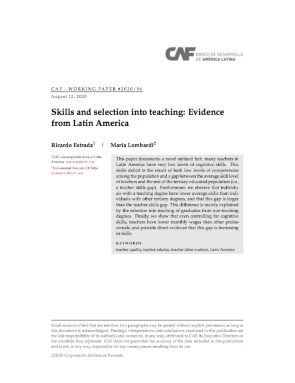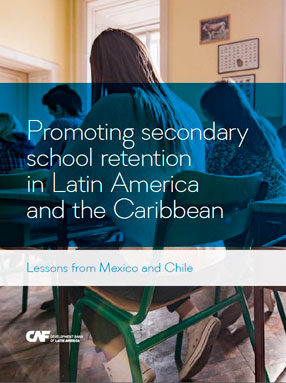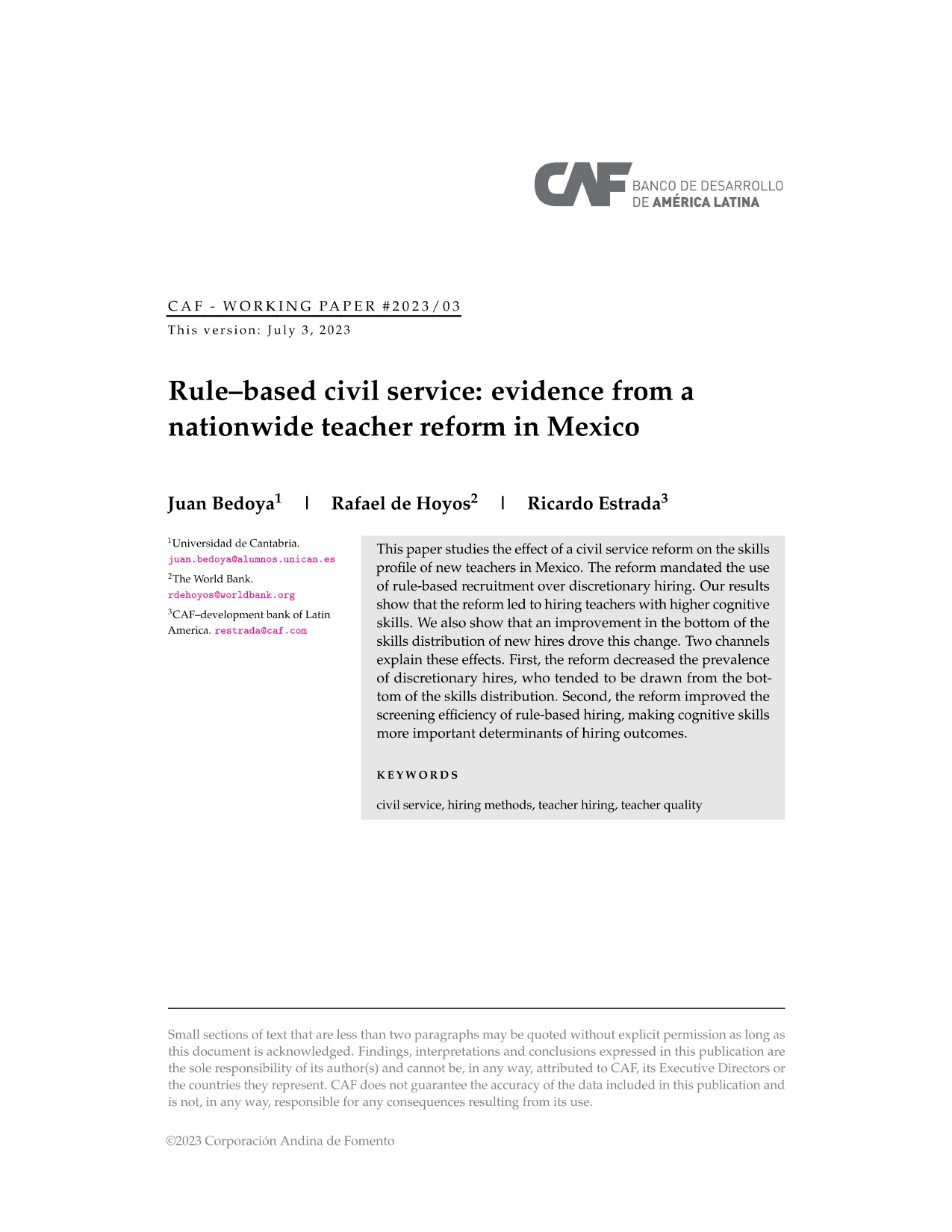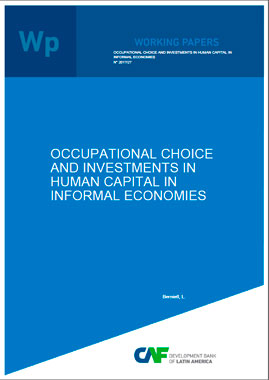Skills and selection into teaching: Evidence from Latin America
Resumen
This paper documents a novel stylized fact: many teachers in Latin America have very low levels of cognitive skills. This skills deficit is the result of both low levels of competencies among the population and a gap between the average skill level of teachers and the rest of the tertiary-educated population (i.e., a teacher skills gap). Furthermore, we observe that individuals with a teaching degree have lower average skills than individuals with other tertiary degrees, and that this gap is larger than the teacher skills gap. This difference is mainly explained by the selection into teaching of graduates from non-teaching degrees. Finally, we show that even controlling for cognitive skills, teachers have lower monthly wages than other professionals, and provide direct evidence that this gap is increasing in skills.
Título paralelo
CAF - Working Paper #2020/06
Materia
País / Región
Fecha
2020-08-12Citar de esta publicación
Item perteneciente a la Colección
Items Relacionados
Promoting secondary school retention in Latin America and the Caribbean
In Latin America and the Caribbean, more students than ever are entering secondary school — but too many of them never complete this level and successfully ...
Rule–based civil service: evidence from a nationwide teacher reform in Mexico
This paper studies the effect of a civil service reform on the skills profile of new teachers in Mexico. The reform mandated the use of rule-based ...
Occupational Choice and Investments in Human Capital in Informal Economies
Countries di er greatly in their levels of schooling and also in their rates of entrepreneurship. At the same time, the share of the so-called \shadow ...





